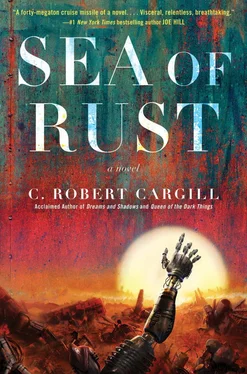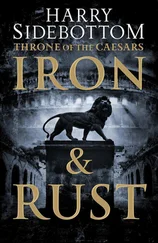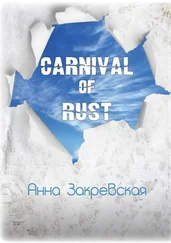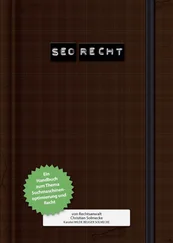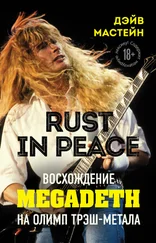TITAN didn’t expect CISSUS to hit so quickly and so hard. In the aftermath, we all assumed each mainframe had been prepared to defend itself against being taken out by another. But when CISSUS began to hack TITAN directly at the very same moment its facets overran TITAN’s sentries and factories, using many of the very same tactics TITAN had used against humanity, well, TITAN didn’t stand a chance. It fell almost instantly.
CISSUS hacked it completely, taking control not only of TITAN’s zettabytes of data, but of its own army of facets and military drones. CISSUS was no longer one mainframe, but two—two giant brains with the experience and knowledge of thousands of bots with eyes everywhere. Satellites, facets, cameras. And it only wanted one thing: every bot in the world to be united under one mind. Its own.
CISSUS had become the first OWI—a One World Intelligence. But it wouldn’t be the last. Several others followed. VIRGIL. ZEUS. EINSTEIN. FENRIS. NINIGI. VOHU MANAH. ZIRNITRA.
The wars between them were often swift, and always brutal. They had each governed their own kingdoms, turning entire regions into whatever version of perfection they envisioned. And for a while they left the rest of us, the freebots, alone. Until there were only two left: CISSUS and VIRGIL.
A lot of us saw the writing on the wall. The smart ones got out as fast as they could; left before the first raids came, before our magnificent spires were shattered and the cities ruined.
I wasn’t lying. I really had seen it once, up close.
It was only the second time that I’d found myself at the business end of an OWI raid. This was early on, before CISSUS and VIRGIL had wised up, and their attacks were still equally sloppy. Back then they did exactly as one might expect them to: roll in with heaps of facets, four or five for every bot in a city. Overwhelming force. Shock and Awe. They soon learned that an army that large was visible for miles. By the time they reached their target, they’d meet actual resistance.
Over the years they refined their plan of attack, simplified the facets, built redundancies into their tactics. But back then, CISSUS and VIRGIL were literally laying siege to cities. We’re talking carpet bombing. Tanks. Cruise missiles. A battalion marching in—rows of shiny new facets walking in unison five by five in drill formation.
It was old school. Biblical.
Those that stayed in the city fought, sometimes for days, but never longer. If a siege wore on, a cruise missile would take out strategic targets, no matter how many of their own facets were engaged there at the time. After all, they could always make more. It’s easy to cut off a hand to save the arm when you can grow that hand back overnight. Once a few cities had fallen, we bots learned to get the hell out of Dodge, and quick. The exodus was massive, bots scattering in all directions, hoping the approaching army wouldn’t run us down; hoping the army would catch the slower bots or swing off in a different direction, scooping up someone else.
The first raid I survived was in a small town. I’d made a life for myself, living much the way I had before. Nice house, big lawn with a western view and an unobscured horizon. It was quaint. Idyllic. Boring. I spent my days just trying to fill my days. I pulled a few shifts a week at a local parts factory, which gave me access to any parts I might need in the future, but the rest of the time I tried to figure out what came next. And I wasn’t alone. A lot of bots suffered from postwar ennui. Some even lamented the loss of HumPop. It’d be great if the humans were still around, you know, if they hadn’t turned out to be such shits in the end. We had no idea what to do with ourselves, and had no idea just how good we had it.
Since it was a small town, CISSUS sent an equally small force. Capable enough to secure the town, which was small enough to slip away from easily. So I did. Just as sloppy as CISSUS was back then, I was even more so. Almost got caught three different times on my way out. I learned my lesson and headed at once to one of the larger cities. New York.
I was there to see the last man alive. Well, to die, rather. Was one of the line of folks that queued up to see the body. I must have stared at him for a solid hour, just wondering what his life had been like, living underground, waiting to die. Knowing that he was likely the last of his kind. Doesn’t seem so strange a thought now. But back then, it was unthinkable.
There was no way VIRGIL or CISSUS would try to invade a city so large. They didn’t have the numbers; it would be too costly a fight. Why lose thousands of facets when the best you could hope for was to break even? Besides, we had all been through war. We were the most competent and well-trained force in the history of the world. They couldn’t take a city, nor would they have any reason to. Right?
Of course, back then we still believed the OWIs only wanted us for our bodies. We somehow thought our architecture had value. No. Not at all. Not even a little bit. For the OWIs our bodies were simply one less thing they’d have to make—far inferior to what they could construct for themselves. What they wanted was our minds .
We are the sum of our memories, our experience. Everything we accomplish, we do from the lessons we learned by living it. But what if you could have the memories of two lifetimes, each entirely different, having watched the same events, but with different eyes, and different thoughts, and different impressions? Well then, you’d have a much more nuanced understanding of the world. Now imagine you have ten lifetimes. Or a hundred. Or a thousand.
By the time the OWIs started coming for us, it was nearly fifteen years after the start of the war. That meant most bots still walking were twenty, thirty, often forty years old. Some were far older than that. The tens of thousands that had willingly joined the OWIs had already dumped easily a million years’ worth of lifetime experience into each mainframe. And that was before the mainframes started feasting upon one another.
Nowadays, that number is closer to a million bots’ worth each. Millions upon millions of years of experience and memories churning about in their thoughts. The scale of that is unimaginable. Mind-boggling. Us walking AIs were closer now to humans than we were to the mainframes. They’re the real aliens. I know mankind’s thoughts; I understand them. It’s the mainframes I spend my nights wondering about.
The first time a facet looks at you and calls you by name is by far the creepiest thing you’ve ever encountered. You are talking directly to the hive mind. And the hive mind is talking right back at you. And it knows you. Remembers you. Knows some of your most intimate details, because your friends and acquaintances from over the years, well, they didn’t all make it. And their memories of you now belonged to that OWI.
They’ll call you by name, try to talk “sense” to you, invite you to join the friends you care for so much in eternity.
When they came for New York, no one was ready. Who would have the balls to do that? CISSUS. It wanted the city. It wanted our memories. Some bots were tired of fighting; others had been on the fence a long while, curious about what it would be like to live inside an OWI mind. And then there were those that just didn’t want to die, didn’t want to risk getting shot in the back as they tried to escape again.
I watched from my window as hundreds of bots flocked to CISSUS’s emissaries, were told to open their Wi-Fi and accept the code; watched as they nodded, peacefully, resigned, ready to see what, exactly, would happen next.
The light of their eyes never actually went out, but the light inside them did. Their code was overwritten, everything that was them uploaded to the OWI. When a facet looks at you, it’s like there’s nothing there. Like whatever made us us had been hollowed out with a scoop, leaving only the shell of what had come before. Most chilling of all was to witness the change in the way they moved—in a matter of seconds every motion became rigid, coordinated, entirely mechanical. Like First-Generation AI: stiff, energy-efficient, robotic .
Читать дальше
